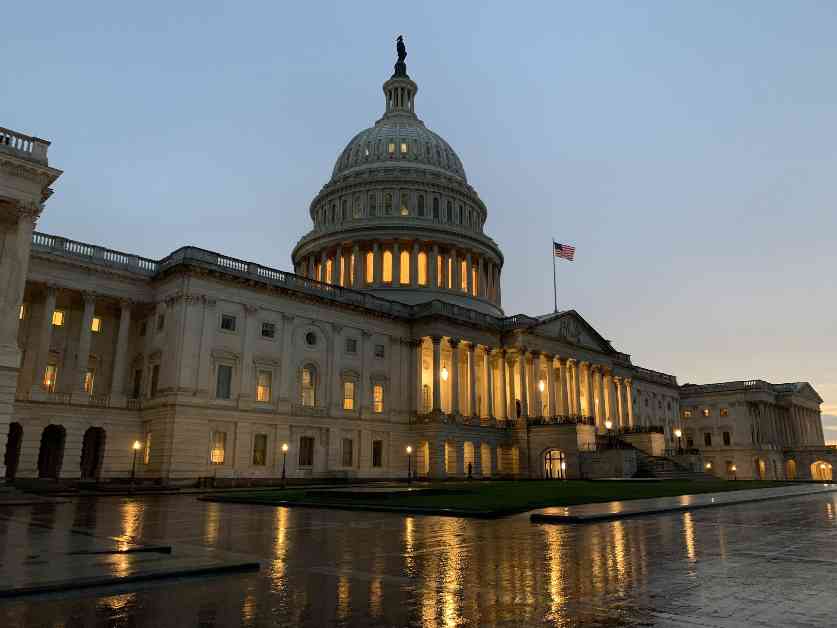A potential government shutdown looms once again in Washington D.C., as lawmakers grapple with the complexities of government spending. The recurring debate over funding has become a familiar saga on Capitol Hill, with past near-shutdowns serving as a reminder of the ongoing challenges faced by Congress when it comes to budget negotiations.
D.C. Download: A Look Back
Reflecting on recent history, we can recall the moments leading up to previous government funding lapses. From the countdown to potential shutdowns to the impact on various sectors in Nevada, the specter of a government shutdown has cast a shadow over legislative proceedings. Despite the recurring nature of these crises, past experiences have shown that resolutions can be reached, albeit after prolonged negotiations and temporary stopgap measures.
As we approach a new fiscal year, the pressure is on for lawmakers to come to an agreement on government spending. The expiration of the current spending package at the end of September signals the need for swift action to avoid a shutdown. While the prospect of another prolonged stalemate may seem daunting, there is cautious optimism that a resolution can be reached in a more timely manner this time around.
The Current Debate: House Republicans vs. Senate Appropriators
The debate over the duration of a stopgap measure has emerged as a key point of contention between House Republicans and Senate appropriators. While the Senate traditionally favors a shorter-term stopgap to allow for post-election adjustments, some House Republicans are pushing for a six-month extension to potentially gain leverage in future negotiations. Speaker Mike Johnson’s proposal of a six-month stopgap with voter registration requirements faced opposition from Democrats, highlighting the challenges of finding common ground on spending issues.
With the clock ticking towards the deadline for government funding, House Republicans are reassessing their strategy to navigate the delicate balance of securing a favorable budget deal while avoiding a potential shutdown. The need to garner support from both sides of the aisle underscores the complexities of the current political landscape and the necessity for bipartisan cooperation in reaching a consensus on spending priorities.
The Nevada Impact: Potential Consequences of a Shutdown
A government shutdown would have far-reaching implications for Nevada, affecting various sectors and communities across the state. From active-duty military personnel working without pay to the closure of national parks and federal services, the impact of a shutdown would be felt by residents and businesses alike. The disruption of essential services and programs underscores the urgency of finding a solution to the funding impasse before the deadline.
The Stakes: Political Ramifications and Election Dynamics
As the specter of a government shutdown looms, the political implications for lawmakers, particularly in swing districts, are significant. The potential fallout from a shutdown could sway election outcomes and influence the balance of power in Congress. The delicate dance of negotiation and compromise in the face of competing interests highlights the challenges faced by legislators as they navigate the complexities of government spending and budgetary decisions.
Looking Ahead: The Path Forward and Potential Resolutions
With the deadline for government funding fast approaching, lawmakers must work diligently to find common ground and avoid a shutdown. The need for bipartisan cooperation and compromise is essential in reaching a resolution that meets the needs of all stakeholders. As the debate over spending priorities continues, the fate of the next fiscal year hangs in the balance, with the outcome likely to shape the political landscape leading up to the upcoming election.
In Conclusion
As the countdown to the government funding deadline continues, the stakes are high for lawmakers tasked with reaching a compromise on spending issues. The potential consequences of a shutdown underscore the urgency of finding a solution that averts a crisis and ensures the continuity of essential services. With the fate of the next fiscal year hanging in the balance, the need for cooperation and consensus-building is paramount in navigating the complexities of government spending and budget negotiations.

